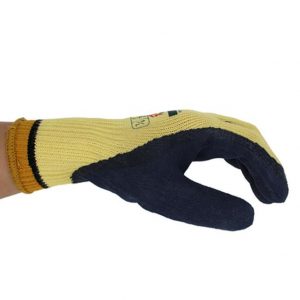Latex gloves are a type of disposable protective gloves made from natural rubber latex, a milky fluid derived from the rubber tree. They have been widely used in various industries and medical settings for decades due to the numerous benefits they offer. Here is an introduction to the benefits of latex gloves:
- Excellent Barrier Protection: Latex gloves provide an effective barrier against a wide range of substances, including chemicals, bloodborne pathogens, bodily fluids, and other potentially hazardous materials. This makes them invaluable in medical, laboratory, and industrial environments where protection from cross-contamination is crucial.
- Comfort and Fit: Latex gloves are known for their excellent elasticity and flexibility, which ensures a snug and comfortable fit on the wearer’s hands. This ergonomic design reduces hand fatigue, making them suitable for extended wear tasks.
- Sensitive Touch and Dexterity: The thin and tactile nature of latex gloves allows wearers to maintain sensitivity in their fingers, enhancing their ability to perform delicate and precise tasks. This quality makes them popular in medical procedures, dental work, and laboratory experiments.
- Biodegradable and Eco-Friendly: As latex gloves are made from natural rubber, they are biodegradable and have a lower impact on the environment compared to synthetic gloves made from materials like nitrile or vinyl.
- Cost-Effective: Latex gloves are relatively economical, especially when compared to other disposable glove options. This cost-effectiveness makes them a popular choice for high-volume usage in medical facilities, food handling, and other industries.
- Durability and Resistance: Latex gloves offer good tear resistance, puncture resistance, and durability, providing reliable protection in various situations. However, it is essential to consider potential allergies to latex in some individuals.
Despite their numerous benefits, it’s crucial to be aware of the potential downsides of latex gloves. Some people may have latex allergies, which can cause skin irritation or more severe reactions. For individuals with latex sensitivity, alternative glove materials like nitrile or vinyl should be considered.
In recent years, due to concerns about latex allergies and the desire for non-latex options, nitrile gloves have gained popularity as a suitable alternative to latex gloves in many applications. However, latex gloves continue to be widely used and valued for their unique benefits and versatility.
















